
(Review archived from October 31, 2018)
Once you get deep into an episodic story, it gets a little bit hard to talk about without spoilers. I’m going to do my best to avoid that in this review, but do be aware that I’m talking about the fourth game (or fifth depending on how you count them) in a series with (more-or-less) one long continuous story line.
Perhaps it was the fact that Telltale Games suddenly and unceremoniously folded up shop this month that once again put the Walking Dead games on my radar. Or maybe (and perhaps more honestly) it’s that I’ve played one Walking Dead Game every October for the last five years. So it was with a touch of bittersweet good byes that I embarked into the world of Walking Dead: A New Frontier, knowing that the days were numbered for all of these characters, both the living and the dead alike.
(Editors Note: As of the date of posting, Telltale has risen from the grave, though largely operating as a shell of their former operations)
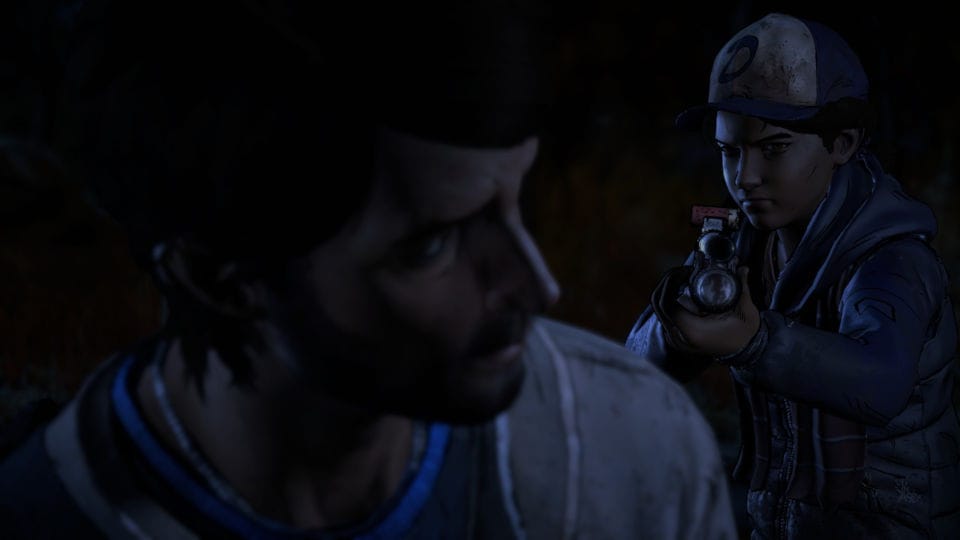
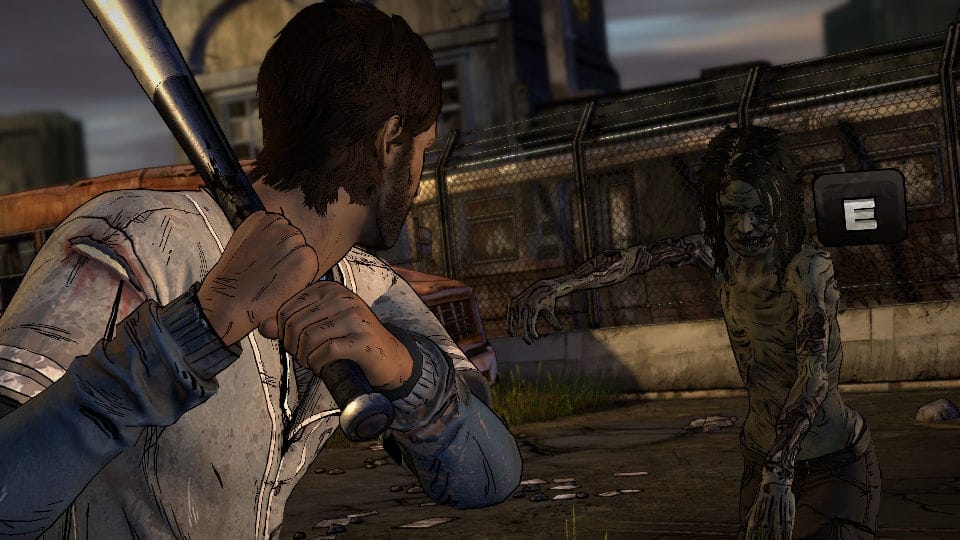
Telltale really eked out a niche for itself with this style of cinematic adventure game, making liberal use of quicktime events, and branching dialogue trees which rival some visual novels in terms of depth and complexity. It’s not a style for everyone, but I quite enjoy it. It’s a style of cinematic game that leans heavily into the ‘cinematic’ without indulging in charade or pretense of being something that it’s not by means of cliched ‘cinematic elements’. It knows what it wants to be and goes all in. Among other things this style allows for some excellent writing, character building, and voice work, all of which are present in Walking Dead: A New Frontier. Telltale really had some of the best writing and voice work in the industry. Come at me bros.
The beginning of New Frontier takes us once again to the beginning of the Outbreak, with a new set of characters, the Garcias. Tolstoy wrote in Anna Karenina that, “Happy families are all alike, but every unhappy family is unhappy in its own way.” And with the Garcias we can see that family tensions are running high and in their own way. Main character Javier is a washed up ball player at odds with David, his abusive control freak older brother. It is this tension that defines their relationship in all matters, from how to handle their aging parents, to the protectiveness Javier feels towards David’s wife Kate who’s also impacted by David’s psychological abuse. Well the zombie apocalypse makes strange bed fellows, and soon enough David is out of the picture leaving Javier, Kate and David’s kids to eke out survival amidst the complete societal collapse. Throughout the game, the story makes effective use of flashback segments, and we eventually find out what happened with David, as well as details of the shared history between various characters.
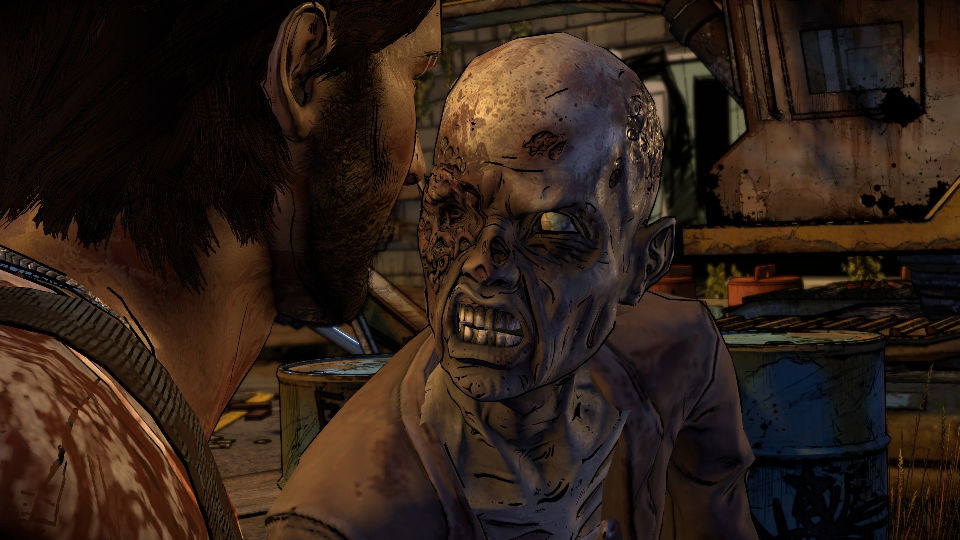
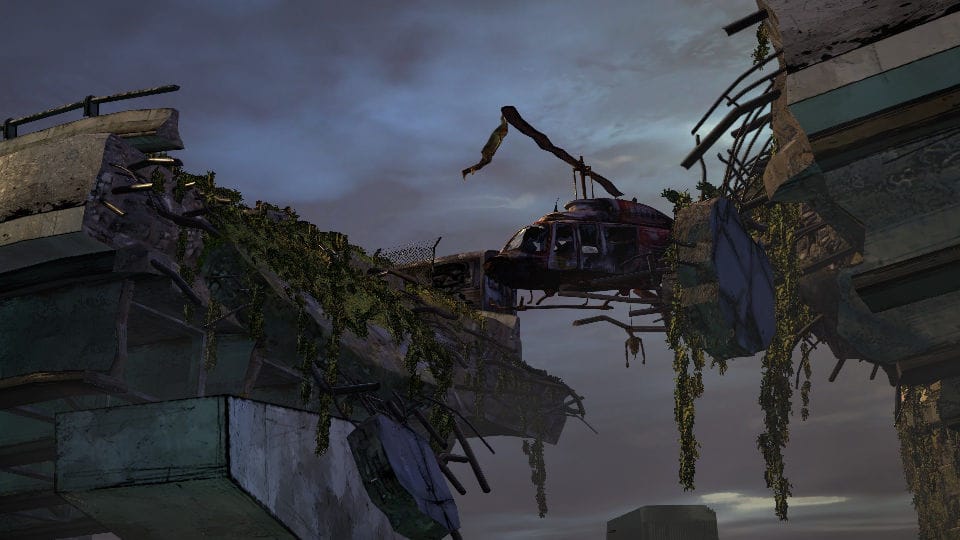
A sudden turn of misfortune finds Javier alone and in a grave predicament when … poof … deus ex machina puts him face to face with an old friend. Well not so much a friend of his per se, but rather a friend of ours, as in the player. Clem comes to his rescue every bit the badass that her mentors have taught her to be. (I’d have put a spoiler around this, but I mean … c’mon … she’s right there on the game banner; you had to figure she was going to show up sooner or later) This is incredibly effective, IMO, because we now see Clem from the perspective of an observer, and not in the role of her protector as in the first game, but from the perspective of someone who is rescued by Clem. Again and again over the course of the game, Clem shows herself to be a capable warrior and protector in her own right despite her young age. This world has made her hard and frankly a bit of a badass. It’s so weird to say, but after assuming the role of her protector in the first game, and playing as her in Season Two, it’s hard not to feel a hint pride at the badass she’s become. It’s an effective story decision, IMO, and one that would have been lessened had we simply assumed the role of Clem directly once more.
Each of The Walking Dead games (with the possible exception of the first) has more or less relied on the old monster movie trope that “it is in fact we who are the real monsters”. So it’s not like New Frontier is winning any points for originality as far as that goes, but when the writing is this good, it’s hard to hold it against it to any significant degree, and to be fair the source material relies almost exclusively on this device well. The character drama is quite good though, and as I mentioned the voice work is fantastic as always. Almost all of the Walking Dead games have been incredibly effective at playing on the emotions of the player, and New Frontier is no different in this regard. I won’t lie as to being torn up regarding the late-game fate of one character in particular. It’s my understanding that under certain circumstances, the fate of this character is different. I might check that out at some point.
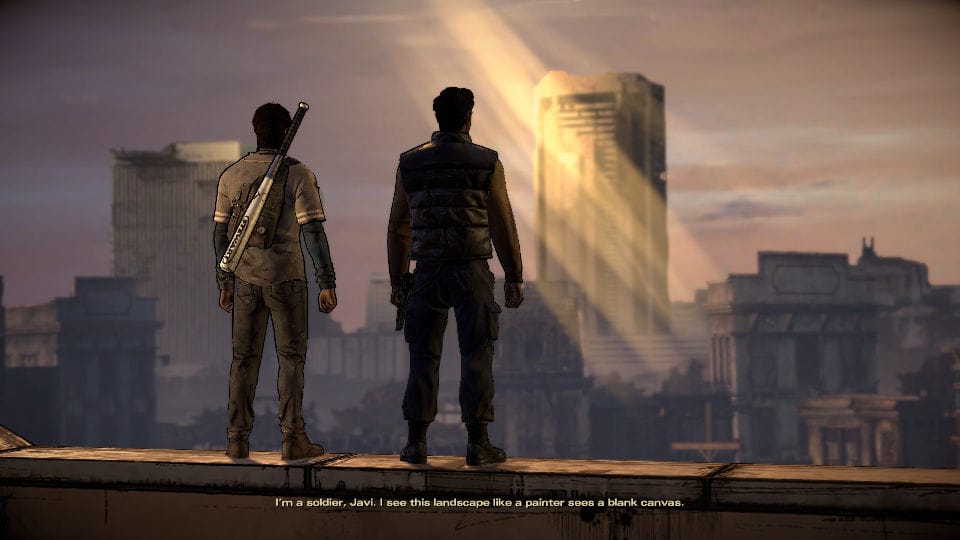
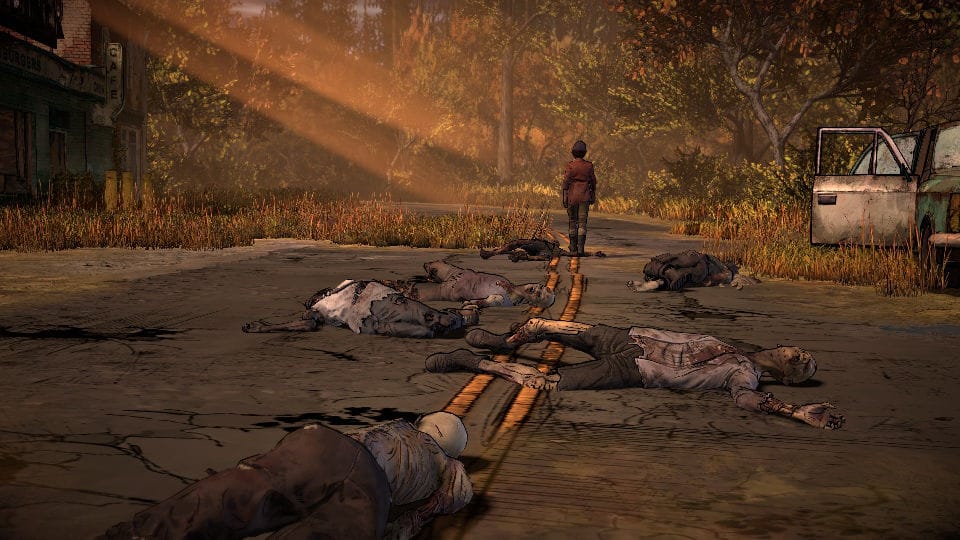
One point of interest in nearly all Telltale games is to compare your key choices against those of other players. For the most part my choices aligned with other players, save for one chapter where I seem to have diverged significantly (I tend to play these games with a philosophy of ‘violence as a last resort or in defense of self/party’). What I found incredibly interesting though, was that almost every decision involving Clem was incredibly one sided, with a high majority of players siding with Clem in all matters. And for my part, I was not terribly different in this regard. Looks like I’m not the only one with an illogical sense of parental protectiveness and pride in the character she’s become. Clementine will remember that.
Leave a Reply